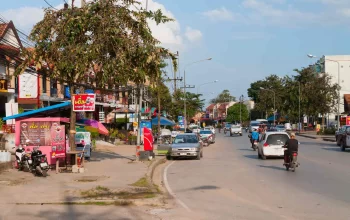The process of management of tourist accommodation can be broadly divided into two main components. The first component covers management of the overall infrastructure and operational processes. The second component is responsible for the management of the tourist influx in a territory. Both these components are complex and require comprehensive management attention. Hence, from the above analysis, it is clear that the study of the subject matter of state management of tourist accommodation is both important and relevant.
The first part of the study considers the process by which the granting of licences for tourist accommodations is done in different states. It is found that there are different criteria imposed on different states for the grant of such licenses. From this study, the research on the subject of management of tourist accommodation is informed.
The second part of the study covers the subject of management of tourist accommodation businesses in Hanoi Haiphong Province. The focus is on the administration of the licensing of hotels and tourist enterprises by the Vietnam State Department of Tourism (Vietnam Tourism Development Agency or Vietnam Tourism Office). The thesis discusses the role of these state management agencies in managing and licensing the establishments in Hanoi Haiphong Province. This study provides an in-depth insight into the workings of the tourism administration in Vietnam.
The third and last part of the thesis analyzes the management of the various types of structures as well as functions in the Hanoi Haiphong Province. This is made possible through the review of the specific statutes and regulations on these matters that are imposed by the Vietnam government on foreign ownership of Vietnamese owned tourist accommodation business activities. An introduction to the various statutes as well as the general norms on tourism and the management of tourist accommodation in Vietnam is made accessible for the students. The overall significance of this part of the thesis can be summed up as follows:
– Tourist accommodation establishments in Vietnam must have a license to function. The law clearly stipulates that tourist accommodation establishments in Vietnam need to have a valid license from the Vietnam Tourism Office and comply with the prescribed operational requirements. This is a very important aspect of the management of these establishments that students need to remember at all times. Failure to comply with the stipulated regulations and Statutes of Vietnam could result in stiff penalties.
– There are specific regulations for foreign direct investors. There are no special regulations for domestic investors in Vietnam, only for foreign direct investors. Thus, it is important that the managers and staffs of these establishments fully comprehend the ins and outs of the tourism sector in order to properly handle such activities. This is a very crucial aspect of the management of tourist establishments that students need to be aware of.
– There are some specific state management agencies that are exclusively meant for the management of tourist accommodation businesses in Vietnam. These agencies are solely appointed by the government in order to control and manage these businesses according to prescribed norms and policies. Students should fully recognize the role that these state management agencies play in the management of these establishments. These agencies should always strive to provide the best services to their clients.
– Specializations in hospitality management are also highly recommended for students to embark on their careers in Vietnam. They may choose from the Masters in Hospitality Administration program which is focused on providing students with an overview of the structure and functioning of hotels and other forms of accommodation establishments. The program will also provide students with a comprehensive introduction to the economics and administrative aspects of such establishments.


